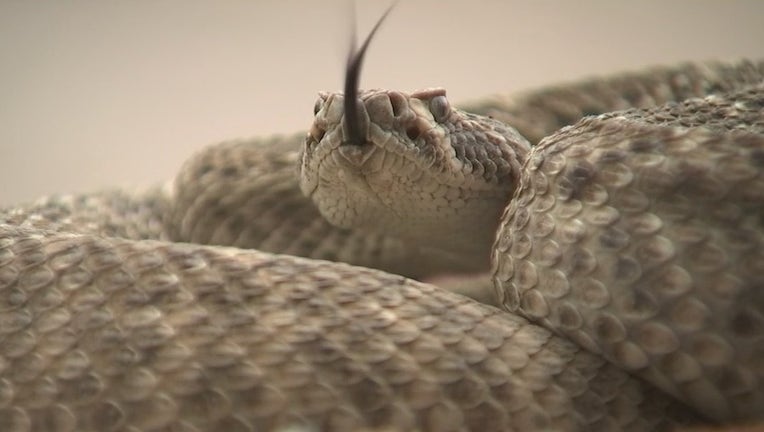Rattlesnake bites on the rise in Arizona - tips to treat it and things to avoid

PHOENIX - As temperatures rise, officials in Arizona say people will have to start looking out for rattlesnakes and scorpions.
This warning comes as medical professionals at Banner Health reported seeing an increase in rattlesnake bites in March.
Snakebite victim speaks out
"It was the worst pain," said Allison Shilling. "I couldn't stand. I couldn't put weight on it. I couldn't do anything."
Shilling is recovering at Banner after she was bitten by a rattlesnake while on a hike in Apache Junction.
"I had no idea there was a snake in the trail where I was stepping," Shilling recounted. "There was a little -- maybe a foot and a foot and half long, maybe a baby, and it didn't make any noise and it blended in super well. I either stepped on him or an inch or two."
The snake bit Shilling's ankle, and she had to hike her way down the mountain to get to the ambulance.
Doctors seeing more cases
"We are starting to see a lot more rattlesnake envenomation," said a doctor at Banner.
Medical professionals say there are several tips people should know in case they're bitten by a snake. They include:
- Get to a hospital as soon as possible
- Stay as still as possible, and remove any tight clothing or jewelry around the area
- Do not apply ice
- Do not attempt to suck the venom out or cut the wound
- Do not apply pressure
"You don't want to do things that might make it worse, which would be a tourniquet. We don't apply that here in the U.S., and that can actually make it worse," said the doctor.
As for Shilling, she says she is thankful that she got help in time, while never thinking she would be in a situation like this.
An important thing to remember is that during hot days, rattlesnakes will be out, with many of them being out during the evening hours.
Other Health Stories
- Phoenix area hospital celebrates 15 years of lung transplants, as well as the lives saved
- New COVID-19 outbreaks give US glimpse at living with the virus: 'Get used to it'
- Raw oysters possibly contaminated with norovirus sold in multiple states, including Florida, FDA warns

